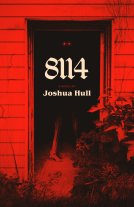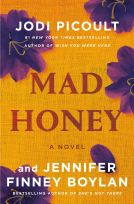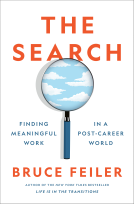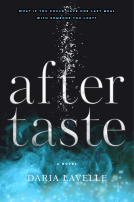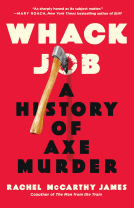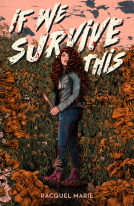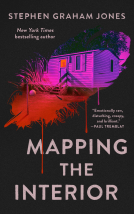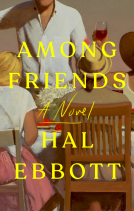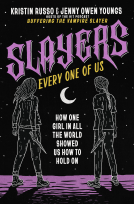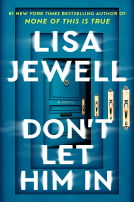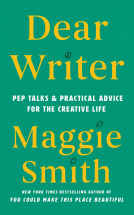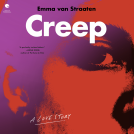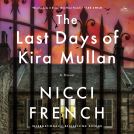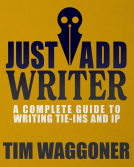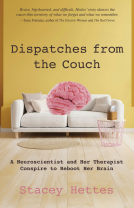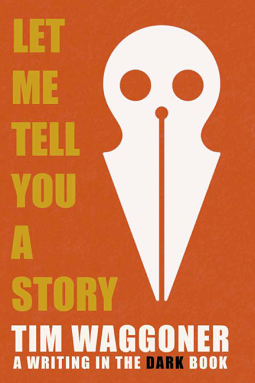
Let Me Tell You a Story
A Writing in the Dark Book
by Tim Waggoner
This title was previously available on NetGalley and is now archived.
Send NetGalley books directly to your Kindle or Kindle app
1
To read on a Kindle or Kindle app, please add kindle@netgalley.com as an approved email address to receive files in your Amazon account. Click here for step-by-step instructions.
2
Also find your Kindle email address within your Amazon account, and enter it here.
Pub Date Oct 05 2023 | Archive Date Nov 10 2023
RDS Publishing | Guide Dog Books
Talking about this book? Use #LetMeTellYouaStory #NetGalley. More hashtag tips!
Description
In Let Me Tell You a Story, Tim Waggoner continues what he started in the Bram Stoker Award-winning Writing in the Dark (2020) and Writing in the Dark: The Workbook (2022), both of which focus on the art of composing successful horror fiction. This latest guidebook takes a different approach, foregrounding Waggoner’s prolific, decades-long career as a professional author. Partly autobiographical, partly tutorial and diagnostic, each chapter features one of Waggoner’s stories followed by reflection on the historical context of publication, insightful commentary, and exercises for writers who are just learning their craft as well as those who have already made a name for themselves. As always, Waggoner’s experience, wit, and know-how shine through as he discusses and re-evaluates material from 1990 to 2018. Let Me Tell You a Story is a vital contribution to his evolving nonfictional oeuvre.
Advance Praise
"Tim’s writing voice is like that of a teacher who really cares about his students and their writing journey—however far along you may be.” —Sadie Hartmann, Mother Horror, 101 Horror Books to Read Before You’re Murdered
“Offering sensible, actionable, and invaluable tips for developing craft, Tim Waggoner’s Writing in the Dark guides feature on my list of must-read texts for all students and teachers of writing. Scarily good advice from a master of horror practice.” —Lee Murray, five-time Bram Stoker Award winner, co-author of the Path of Ra series
“You can trust Tim to teach you not so much how to write, per se, but how to think like a horror writer. This basically means that you’ll instinctively know how to chill someone with a disturbing idea, outsmart them with an outrageous twist ending, or caution them with a clever moral lesson, and it will all come naturally to you. He’s a masterful educator on the dark side.”—Michael A. Arnzen, Bram Stoker Award-winning author Play Dead
Available Editions
| EDITION | Paperback |
| ISBN | 9781947879645 |
| PRICE | $18.95 (USD) |
| PAGES | 228 |
Available on NetGalley
Featured Reviews
 Elle P, Librarian
Elle P, Librarian
Engaging and insightful. A recommended purchase for collections where writing craft titles are popular.
I really dug how this book was presented! I’ve been trying to write more short stories since my first was published in an anthology a few months ago. This book was a great way to show different styles and structures of short stories. But the best part was hearing the background of the story and what he would have done differently. It didn’t really have anything to do with editing, unless you look at it from a macro scale. It’s not very often we get to see an author’s point of view on their own past work (publicly) as well as a breakdown of what changes they would make. This was so useful if you are a writer, particularly if you have an eye for horror. But any writer can use this. I enjoyed it so much, I suggested it as a resource in my MFA class!
Huge thanks to RDS Publishing and NetGalley for sending me this ARC for review! All of my reviews are given honestly!
I'll start this with a few comments. I've read the other two books in this series. They're two of the best "How To Write" books. The other books on that list are Stephen King's On Writing, On Writing Horror By the HWA, and John Gardner's On Becoming A Novelist. Some of these are not true "How To" books. King's is more of a memoir, plainly stated on the cover. The others are How To Write books. Yes, King's book has a section on "How To," but the majority of the book is a memoir and a damn good one.
Tim's books stick with horror, and while the first two, especially the first book, are great for beginners, the third book feels like it's for those further along in their writing.
I loved this one as someone who has moved in a different direction with their writing. The first two helped me get started. This one is helping me move along in a number of ways.
I stopped writing for the last couple of months. It's him analyzing his own stories. Some of which were written a number of years ago. This feels like Tim talking to his younger self. Telling stories about the writer he was. Going through the stories is an analysis of the stories, but also a trip and memoir about the writer he was and is.
I've read my older stuff and see the progression from that writer to the one I am now. I see the elements repeating themselves, as they have for Tim.
Now, the part I can't talk about. I did not do the exercises in this book. Doing them and reading the book for a review would take a bit longer. I will do them when the book comes out and share them here. I spent a few weeks doing the exercises in the other two books. I intend to do that with this book as well.
I'll say that Tim gets better with each one of these. I'm sure he'll be up for another Stoker for this one and probably win.
This series of books has helped me find my voice, fix writing issues, and improve my grasp of the craft. His idea in the first book of creating bags and pulling things from them gave me the idea for the novella I have coming out next month. It was woods, mental health, and cults. I ran with it from there. I got my copy through NetGalley, but as with the others in this series, I'll purchase the physical copy. I need to get through each of the exercises. You all will be the first to know when I do.
I haven't read his other books, so I didn't know what to expect. I do love the format where he shares a story & then goes through feedback he received & changes he made or would make these days. It also has writing exercises. You could even read it if you just want to read short stories. In the beginning he talks about writing female, lgbtq+, non-white characters, which I appreciate. I've read books from female POV by male authors that said ridiculous things, & I've read ones that focus on female experiences (like menopause & postpartum depression) that were done well to the point of surprising me. Even if you don't want to write horror this book would be useful, as long as you can handle reading some
Readers who liked this book also liked:
Jodi Picoult; Jennifer Finney Boylan
General Fiction (Adult), Literary Fiction, Women's Fiction
Kristin Russo; Jenny Owen Youngs
Biographies & Memoirs, Humor & Satire, Nonfiction (Adult)
